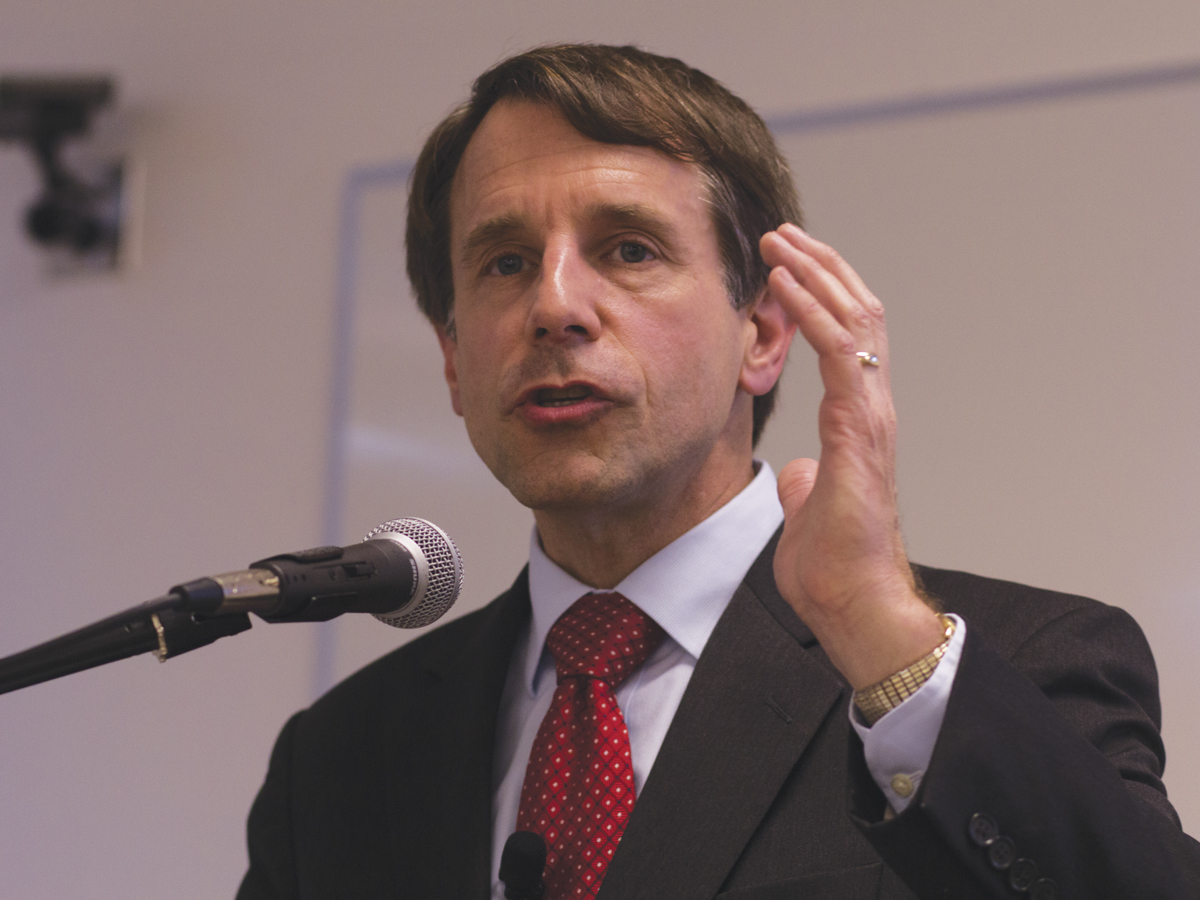
California Insurance Commissioner Dave Jones spoke at UCR on Thursday as part of the School of Public Policy’s seminar series, in which well-known policymakers — including former Secretary of Labor Robert Reich — are invited to discuss major policy challenges, both regional and global.
Jones is a Democrat and former legal aid attorney who has served as insurance commissioner since 2011, and is currently on the School of Public Policy’s advisory board.
“I invited (Jones) to speak to our students because the implementation of healthcare reform … is one of the biggest problems facing our state and nation,” said Anil Deolalikar, dean of the School of Public Policy.
Joined by an audience of about 35 eager listeners, Jones discussed the problems that the American health care system faces today, and how he believes the Affordable Care Act (ACA) is helping to fix them.
The overarching problem with the federal system, he explained, is insufficient access to health care and the costs associated with it.
According to Jones, the U.S. has 50 million uninsured people, and spends $2.8 trillion annually on healthcare, or 18 percent of its gross domestic product (GDP), figures which are much higher than other industrialized nations.
“All of this money that we’re spending isn’t getting us better health outcomes, and that makes the situation even worse,” said Jones, citing the the nation’s lagging life expectancy and relatively high rates of infant mortality and curable diseases.
Jones referred to the key ways in which the ACA is ameliorating these problems. He explained that by requiring individuals to be covered and employers to offer coverage, health care can now reach a much wider portion of the population.
“The idea is to make sure that the risks associated with disease and illness get spread across a larger population,” he said.
Also under the ACA, insurance companies can no longer refuse coverage based on a pre-existing condition, and stops them from charging women much higher rates than men. It also allows single adults access to Medicaid, and offers online health insurance marketplaces where insurance and products can be compared and selected based on price and cost share, something that was difficult to do prior to the ACA.
Several audience members raised questions after Jones’ talk, including Rachel Tennell, student ambassador for UCR’s School of Public Policy, who expressed concerns about the disparity in health care that communities of color experience. “We don’t have a lot of great preventative care when it comes to those communities,” she said, wondering what could be done to bridge the gap.
In response, Jones explained that simply extending health care coverage to a larger portion of the population, something the ACA is already doing, would help to alleviate the problem.
People of color have historically been disproportionately represented among the uninsured, representing 40 percent of the U.S. population, but over half of the uninsured population. Hispanics, the group with the highest uninsured rate, represented 32 percent of nonelderly uninsured in 2013, despite making up only 19 percent of the total population.
Jones hopes to improve outreach to these communities to increase the number of people who sign up for the ACA, which he believes will lead to more and better preventative care for them.
However, despite the ACA’s best efforts, Jones believes that health care will still be a problem well into the future, citing a major political rift on the issue. “There’s very little talking between the two (sides) and a lot of arguing and a great inability to look for commonsense solutions that would bridge those divides,” he said.








